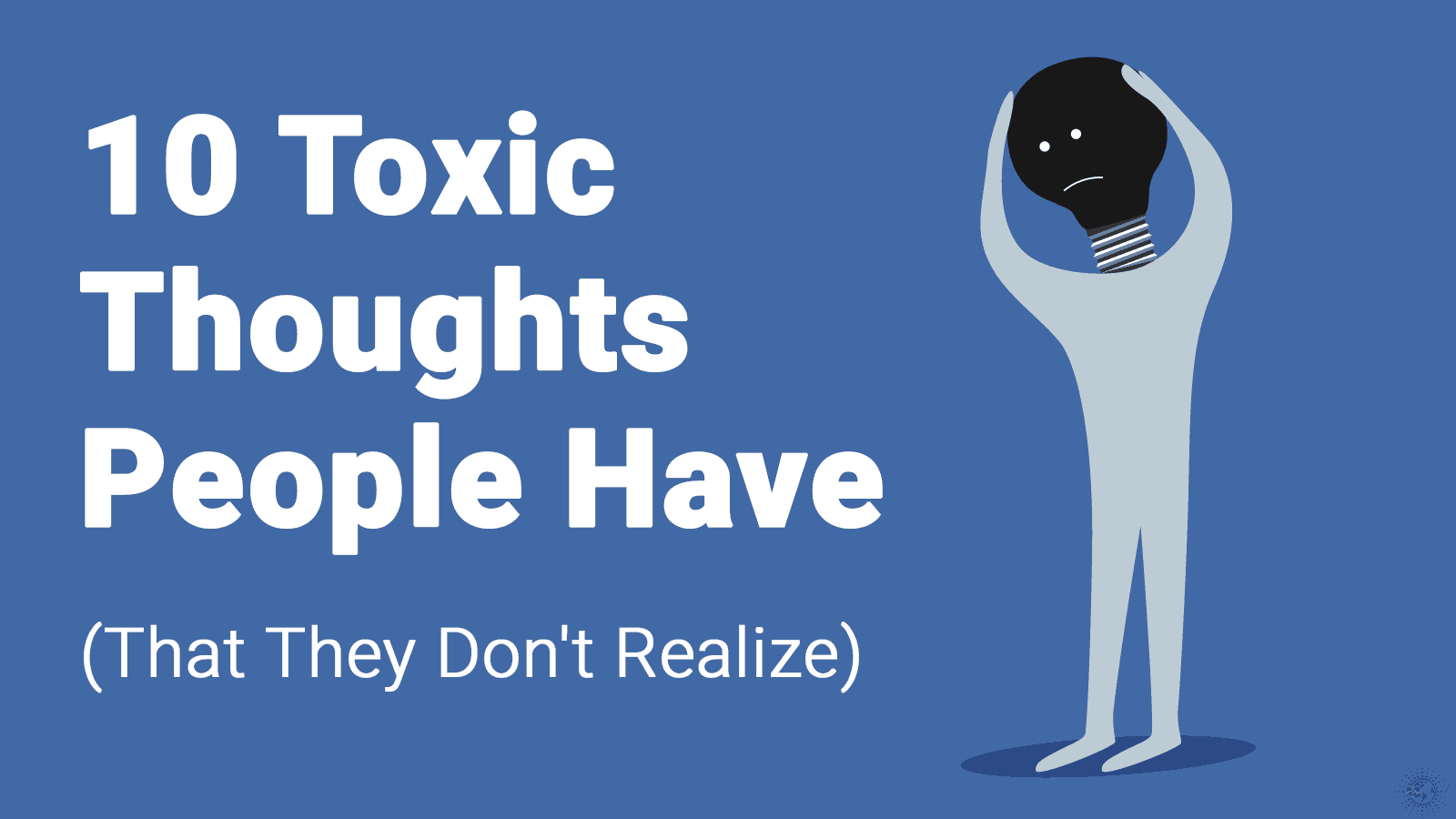Our brains are wired for negative thoughts.
Here’s Amit Sood, M.D., author of The Mayo Clinic Handbook for Happiness: A 4-Step Plan For Resilient Living:
When it’s bored, the brain sulks in its default mode. Its attention wanders, thinking about something other than what you’re currently doing or wanting to think about. A wandering mind costs you nothing, but it’s very expensive. It causes stress, depression and anxiety, and takes away happiness.
Negativity bias … refers to the notion that, even when of equal intensity, things of a more negative nature (e.g. unpleasant thoughts, emotions, or social interactions; harmful/traumatic events) have a greater effect on one’s psychological state and processes than neutral or positive things. – Wikipedia
Your brain spends more than fifty percent of its time in toxic thoughts “default” mode.
Our mind’s operations are dominated by stimuli produced by the lower (“reptilian”) brain, what Dr. Sood refers to as the “default” mode. Our default mode produces neutral or negative thoughts and is often experienced as mind wandering. Consequently, we tend not to be happy when we spend too much time in default mode.Unfortunately, we spend more time in default mode than in focused mode, something that is evident by the amount of mind-wandering we engage in.
Default Mode = Toxic Thoughts.
Have you ever noticed the amount of garbage that your brain produces when left to its own devices? The Japanese call this “monkey mind,” as our brain hops from one useless thought to the next without inhibition, similar to how a monkey hops around without thinking about where it’s going!
Of course, such “mind hopping” invites toxic thoughts to take hold. This is due to our brain’s innate negativity bias. That is, our mind has a tendency to pay more attention to things that are negative than positive or neutral topics.
Recognizing Toxic Thoughts
In this article, we’re going to talk about ten toxic thoughts and thought patterns that are common to many. It’s essential to notice when our thoughts turn toxic, as this enables us to switch to a more positive way of thinking.
First, here are ten toxic thoughts that many people have and don’t recognize:
1. “I’m a loser.”
Feeling unworthy impairs our ability to function, period. Destructive and self-limiting beliefs about one’s self can develop anxiety, depression, and even suicidal thoughts. Constructing a healthy mindset involves challenging this limiting belief.
2. “Someone else will take care of me.”
A sense of entitlement is a poisonous and dangerous state of mind. Poisonous because it will ruin our relationships, self-confidence, and self-worth. Dangerous because it sets us up for an existence where we depend on someone else for everything – and remain vulnerable to their whims.
3. “I’m always right.”
People who insist on being right all of the time risk living a life of stagnation. Without a willingness to admit when we don’t know something, it’s impossible for us to make mental and spiritual progress.
4. “I’ll do it tomorrow.”
Will you really do it tomorrow? Or will tomorrow become next week, next month, or never? Whatever you decide, know this: procrastination is the number one cause of dissatisfaction. Also, procrastination produces unnecessary stress and anxiety. Taking action, even if it’s just a small step, can quickly render these negative feelings mute.
5. “I’ll be happy when…”
“I get that new job,” “I have a million bucks,” “My house is paid for,” “College is finally over.”
No, no, no, and no. Multiple studies have shown that happiness is not dependent upon on income, education, or career. Studies have also shown this to be true: happiness is a life spent working on our life’s purpose and the ability to enjoy the present moment.
6. “It’s their fault.”
As you might have come to realize already, adults are not immune to immature thinking. Failing to take responsibility and blaming someone else for our problems can lead to a life of dissatisfaction. Own up to your choices in life and refuse to entertain self-made excuses.
7. “I can’t screw up.”
Mistakes are part of being human. This may sound cliché and overhyped, but expecting perfection will breed disappointment. Worse, fear of making mistakes manifests in procrastination, low self-esteem, and overthinking. Take action and let the chips fall where they may!
8. “It’s so unfair.”
Let’s not kid ourselves: life can plain suck at times. While this may tempt us to ruminate on the unfairness of life, to do so would only compound whatever crapfest is being thrown in our honor. Instead, face whatever it is head-on and try to make the best of things!
9. “I don’t want to put in the effort.”
In the 1920s, the socialist Soviet Union (now Russia) hung posters that read, “He who does not work, neither shall he eat.” People had to take whatever work they could for the mere hope of being able to feed their children. We all get lazy from time to time, But when we look at it rationally (in this case, historically!), we have no excuse for living a lazy life.
10. “I’ll try.”
Do you mean “I’ll do my best?” If so, good for you. The problem is when the words “I’ll try” project a self-defeating attitude that inspires no one. Whether or not we realize it, self-talk impacts our daily life – so pay attention to what your unconscious mind is telling you!
The “Focused Mode” of Thoughts
Fortunately, our secondary way of thinking – the “focused” mode – can forcefully repel toxic thinking. Here’s Dr. Mood once again:
“You are in focused mode when you’re paying attention to something interesting and meaningful, often in the external world … Intentionally choosing productive, purposeful thoughts also engages your focused mode.”
In short: where we direct our attention largely determines the emotions we experience. When we allow the mind to fixate on negative thoughts and sensations, such as those mentioned above, we will experience negative emotions. When we focus on something stimulating and meaningful or produce good thoughts, we feel good as a result!
Final Thoughts on the Importance of Banishing Toxic Thoughts
Sharpening your attention is one of the most beneficial things you can do with your time. One book incredible book on the topic is Focus by Daniel Goleman. The book is written with a casual, empathetic, yet instructional tone.
It is worth mentioning that every area of our life can be improved with enhanced focus and concentration. You will notice these benefits as your attention sharpens:
- More quality time with family and friends
- Better sleep
- An Increased sense of purpose
- Stronger drive
- Fewer mood swings
- Strengthened relationships at work
- More opportunities
To end this article, here is an excellent quote by the late Steve Jobs:
“That’s been one of my mantras – focus and simplicity. Simple can be harder than complex. You have to work hard to get your thinking clean to make it simple. But it’s worth it in the end because once you get there, you can move mountains.”
















 Community
Community

